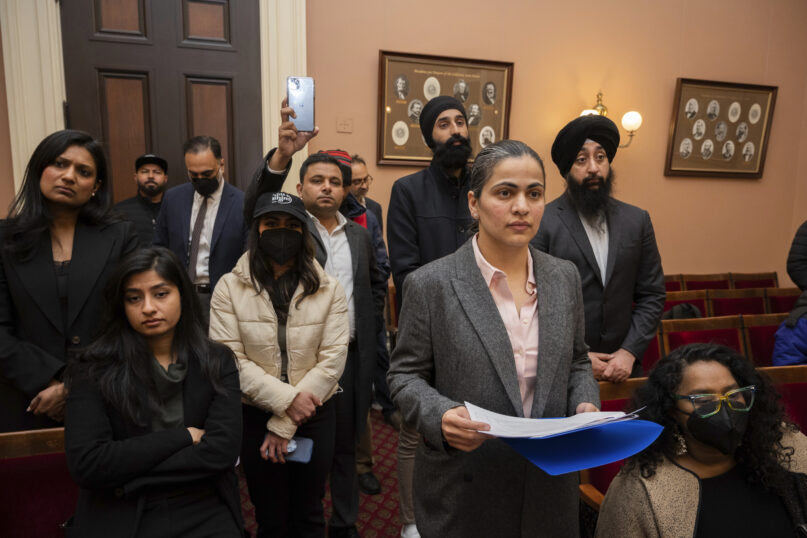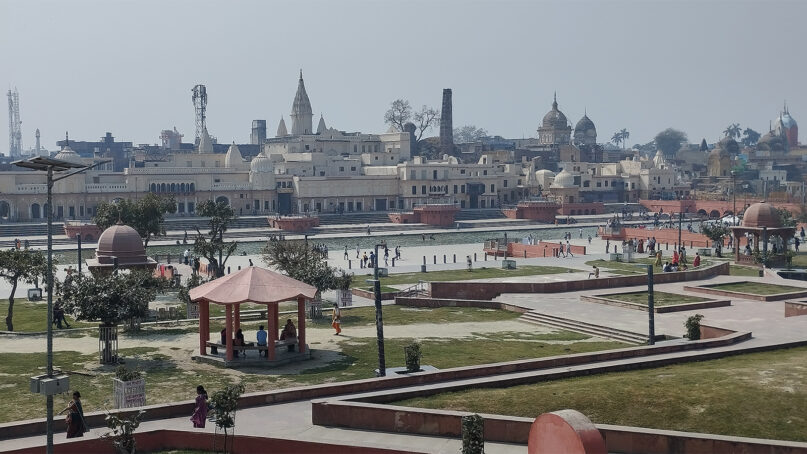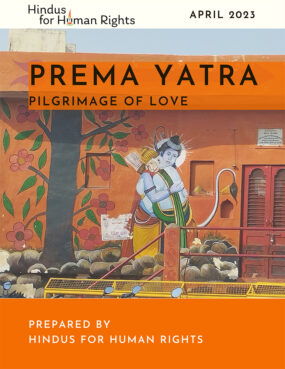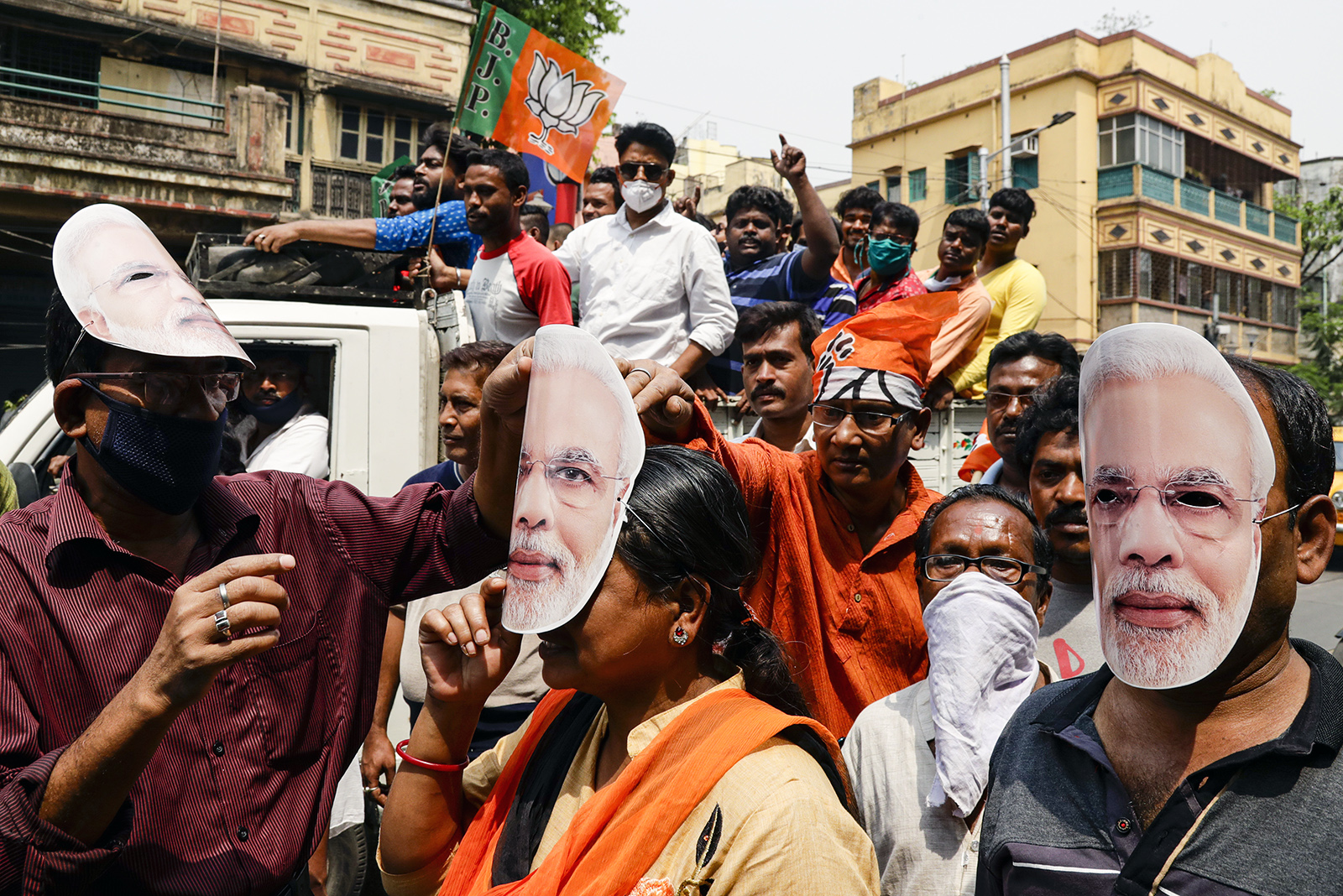Amid threats, California lawmaker calls bill barring caste discrimination ‘right thing to do’
Groups such as the Hindu American Foundation and the Coalition of Hindus of North America say the bill targets Hindus and Indian Americans who are commonly associated with the caste system.

(RNS) — With only a couple of months in office, newly elected state Sen. Aisha Wahab introduced a historic bill that could make California the first state to outlaw caste-based discrimination in the United States.
Wahab’s measure has garnered global attention, adding caste — an ancient system of social hierarchy determined by birth — as a protected category in the state’s anti-discrimination laws. Caste discrimination is “a social justice and civil rights issue,” she has said.
Hundreds on Tuesday (April 25) provided testimony for and against this bill as it passed through the Senate’s Judiciary Committee. The bill, known as SB 403, now heads to the Appropriations Committee.
People of South Asian descent, particularly Dalits who are at the lowest strata of the caste system, say the bill is crucial to protect them from discrimination in housing, education and tech sectors. Among the organizations supporting the measure are Hindus for Caste Equity and the Sikh Coalition, which noted that Sikhs know “firsthand the pain and trauma that comes with being repeatedly targeted by hate and discrimination.”
It has also spurred pushback, from groups such as the Hindu American Foundation and the Coalition of Hindus of North America, who say the bill targets Hindus and Indian Americans who are commonly associated with the caste system. The organizations have submitted letters of opposition, saying Wahab’s measure “seeks to codify” negative stereotypes and stigmas that Hindus and Indian Americans face. Critics also say current laws in place offer protections to any kind of discrimination, including caste.
Wahab, the first Muslim and Afghan American elected to the state Legislature, said she’s been the target of Islamophobic threats and has received social media messages calling for her death after introducing the bill. She said members of her staff have been bullied and followed to their vehicles.
Within a day of introducing the bill, “we saw the extent of the hatred,” Wahab told Religion News Service in a recent interview. “We are being vilified,” she said.
As she continues to push for her measure, Wahab is considering whether to be fitted for a bulletproof vest. Though hesitant at first, Wahab said, “It’s getting to that level.”
“Because we struck a nerve, we also know that we identified the problem,” Wahab said.
Wahab’s proposal comes on the heels of Seattle adding caste to its existing anti-discrimination policies, becoming the first city in the U.S. to do so. In January 2022, the California State University system — the largest public university system in the U.S. — passed a resolution adding caste as a category of discrimination.
The university system’s decision came after a 2018 study — conducted by the anti-caste advocacy organization Equality Labs — found that of 1,500 participants who were surveyed, 25% of those identifying as Dalit reported experiencing verbal or physical assault based on their caste. One in 3 Dalit students reported discrimination in educational settings. Critics of the report have raised concerns that the study was not based on a representative sample.
RELATED: Hindu advocates sue California, arguing bans on caste discrimination misrepresent beliefs
In contrast, a 2020 survey of Indian Americans by the Carnegie Endowment for International Peace found 5% of respondents reported encountering discrimination due to their caste identity, though only 1% of Hindu respondents who identified with a caste identified as Dalit. The vast majority — 83% — of Hindu respondents who identified with a caste identified as General or upper caste. Additionally, most Hindus surveyed did not identify with a caste at all (53%). The study urges some caution around these findings, citing small sample sizes and the sensitive nature of questions around caste.
Meanwhile, the United Nations in 2016 reported that at least 250 million people worldwide still face caste discrimination in Asia, Africa, the Middle East and Pacific regions, as well as in various diaspora communities, according to The Associated Press. Caste systems are found among Buddhists, Christians, Hindus, Jains, Muslims and Sikhs.
As California becomes more diverse, Wahab said, “the deeper and further our laws have to be to protect all people.” Caste discrimination remains taboo and out of the mainstream, Wahab said.
Wahab said she has ensured her measure does not reference any specific religion or a single particular group, but she noted, “We have to be honest that when we talk about specific discrimination, it does happen to a specific group.” Her bill states that “while caste systems are strongly associated with South Asia, similar systems exist in regions including, but not limited to, South America, Asia, and Africa.”
“Caste discrimination is also found across communities of religious practice,” according to the bill.
But to Pushpita Prasad, a board member of the Coalition of Hindus of North America, “this bill targets Hindu Americans” simply by using the word “caste.”
“Caste is associated with Hinduism in the West,” she said.
The Coalition of Hindus of North America is also critical of Equality Labs, one of the sponsors of the bill, and its report, in which a section details how South Asians identify each other’s caste. Identifiers include skin color, noting that “Caste-oppressed peoples are perceived to be darker in skin color than ‘upper’ Caste people from the same region.” Other identifiers include family and social affiliations and food preferences, the latter noting that “many vegetarians are ‘upper’ Castes.”
According to Prasad, skin color “is a completely baseless allegation, and one that they have made up … because it has allowed them to tap into the guilt that lives in the U.S.”
“It would be impossible for anybody to judge their place in the social economic hierarchical structure, either now or through history, based on just skin color,” she added.
To Shreena Gandhi, an assistant professor of religious studies at Michigan State University, seeing Hindu groups say that “this could subject us to more discrimination,” shows her that they know caste discrimination is a problem.
Gandhi is part of the Feminist Critical Hindu Studies Collective that examines how “far-right Hindu nationalist agendas seep into the everyday discourses of North American Hinduism.” It’s what the collective refers to as “Hindu fragility.”
Gandhi said caste discrimination is not just about Hinduism. “It’s a form of oppression that transcends any one religion,” she said.
“We have to confront this legacy of oppression. That’s why as someone who has caste status, I’m for this bill. It’s not about me … It’s about justice,” Gandhi added.
Wahab said she has met with multiple groups opposing her measure but acknowledged it’s likely that they may not come to a place of mutual agreement. Groups against her measure say Wahab has not granted them the same access as she has for those who support her bill.
Even so, Wahab said, “you could also be fundamentally in disagreement with somebody” and still “have respect for them.”
Growing up in the foster care system, Wahab said, she learned to be “sensitive to how other cultures, other languages, other groups, other religions are discussed.”
Wahab and her sister grew up going to a Pentecostal church with the family they were placed with. She remembers celebrating Easter and Christmas, as well as attending Bible study and Sunday school. “I learned a lot. … It was a big part of that family,” she said.
They were eventually adopted by an Afghan and Muslim family. When it comes to religion, “we’re more cultural,” she said. “I identify largely as an Afghan American. I’m very proud of my background and heritage and culture.”
Wahab doesn’t wear a hijab and acknowledges there are expectations “to fit this mold of being either Christian, or Muslim, or Jewish, or whatever the case is,” but she said, “We show up differently, we have different experiences.”
RELATED: Muslim Americans make historic gains in 2022 midterm elections
Wahab, who previously served as a council member for the city of Hayward in the Bay Area, said she entered the Legislature intending to tackle the issue of caste.
Wahab has told reporters she’s witnessed this kind of discrimination living in Northern California, where the state in 2020 sued Cisco Systems, alleging a Dalit employee faced caste discrimination when Hindu supervisors cut him out of meetings and failed to promote him.
In another case, a wealthy Berkeley landlord went to prison for sex trafficking young women from India, some who were Dalit.
Wahab recalled meeting a group of people who were in tears, saying that her bill allowed them “to be seen as human.”
“That was profound,” she said.
To Wahab, these stories make it worth it.
She said she’s proud of her bill because it’s ensuring “there’s a level playing field for all people in a certain community.”
“This is standing on the right side of humanity, and the fact that the caste system is over 2,000 years old, and it hasn’t been touched in this critical way, of course it upsets people,” Wahab said. “I think people know that we’re doing the right thing.”
The Associated Press contributed to this report.
LA REVUE GAUCHE - Left Comment: Search results for HINDUISM IS FASCISM
A ‘pilgrimage of love’ seeks Indian Hindu leaders willing to condemn Hindu nationalism
Past religious leaders have spoken against hate originating from their own religious traditions.

(RNS) — In 2019, Anantanand Rambachan, the Hinduism scholar and co-president of Religions for Peace, wrote: “The rise of populist nationalism, and especially those versions that clothe themselves in religious colors, requires a critique from the same religious traditions.”
Throughout history, religious leaders have spoken out against hate and violence originating from their own religious traditions, sometimes risking their lives in the process.
Dietrich Bonhoeffer, a German Lutheran pastor and theologian, agitated against the Nazi regime’s takeover of his religious tradition and its persecution of Jews. He was eventually imprisoned and executed in 1945. In the 1960s, the Rev. James Reeb, a white Unitarian Universalist minister and Civil Rights activist, marched with the Rev. Martin Luther King Jr. and was murdered at the age of 38 by white racists.
In modern India, Baba Lal Das, the mahant of Ayodhya’s Ram Janmabhoomi temple and a strident opponent of Hindu nationalist groups, was mysteriously murdered in 1993. More recently, Swami Agnivesh, an outspoken critic of Hindu nationalism and caste who fought for the rights of many marginalized communities in India, was repeatedly attacked by Hindu nationalist mobs on multiple occasions.
But what about today? We at Hindus for Human Rights have often asked ourselves this question: Among India’s nearly 1 billion Hindus, where are the voices of fearless religious leaders in the mold of Bonhoeffer, Reeb, Baba Lal Das and Agnivesh?
For years, Hindu spiritual leaders such as gurus Sadhguru and Sri Sri Ravi Shankar have made bigoted anti-Muslim remarks and promoted Hindu nationalist ideology, capped by calls for a Muslim genocide two years ago at a meeting of Hindu holy men in Haridwar, India.
Last year, Hindus for Human Rights published a statement condemning Hindu nationalism and Islamophobia, signed by dozens of Hindu religious leaders and temples in the United States and across the diaspora. Very few Hindu religious leaders in India, however, agreed to endorse the statement.
Over February and March of this year, my HfHR colleague, Sunita Viswanath, and I set out to investigate this phenomenon, embarking on a “prema yatra” — a pilgrimage of love — searching for Hindu religious leaders who were concerned about the state of affairs in India today.

Courtesy image
What we found, as summarized in our newly released report, was both deeply concerning but also incredibly inspiring.
In our yatra, we traveled across nine Indian states, visiting 12 cities and several villages, where we met nearly 30 Hindu religious leaders who had been recommended to us by our partner organizations and contacts. We visited major pilgrimage sites, such as Haridwar, Varanasi and Ayodhya, as well as Delhi, Mumbai and Thiruvananthapuram.
In our conversations, we encountered a pervasive sense of victimhood or resentment among Indian Hindus, deeply intertwined with hatred toward India’s Muslim minority, and throughout our trip, we saw the extent to which Indian Muslims have been dehumanized in the minds of many Indian Hindus and their religious leaders.
One swami we met in Maharashtra, a leader of a prominent and wealthy Vaishnava sect, insisted that Indian Hindus face much more discrimination than Indian Muslims and Christians. Descriptions of Indian Muslims as insular, violent and hostile were repeated by other Hindu religious leaders. Another swami in Uttar Pradesh declared that Muslims do not know the concept of humanity (“insaniyat” in Hindi) and are intent on converting all Hindus.
Over the course of the yatra, we came face to face with Hindu nationalism in direct and unexpected ways. Meeting with a swami who was visiting Delhi, we unexpectedly found ourselves in the same room as members of the Hindu Mahasabha, the Hindu nationalist political party. After a particularly unpleasant meeting with a bigoted swami who was visiting an ashram in rural Uttar Pradesh, the ashram’s trustee, who disagreed with his views, told us that the Hindu nationalist group Rashtriya Swayamsevak Sangh has been trying to infiltrate ashrams and temples in rural communities, sending its members to spend a few days at a time to plant the seeds of polarization, to be reaped in the future.
And yet, we also found many reasons for hope. Many religious leaders across India expressed deep worry about the state of affairs in India today.
Some of these leaders grounded their opposition to Hindu nationalism in explicitly religious terms. One temple priest in Varanasi told us that his idea of dharma is inseparable from humanity (“manavta” in Hindi), which he said was the opposite of Hindu nationalism. A leader of a monastic institution (math) explained that he had been inspired by bhakti poet-saints, who spoke up for the rights of marginalized communities. One swami in Haryana simply stated to us, “India has never had only one religion. This is a pluralistic land.” Religious diversity, he said, was at the heart of what it means to be Indian.
Many Hindu religious leaders we met are concerned that Hindu nationalists are working to change or end age-old religious traditions and reshape Hindu sacred sites. In Varanasi, where Hindu pilgrims come to bathe in the sacred Ganges River, several priests and mahants we met were deeply upset by the renovations commissioned by Prime Minister Narendra Modi’s Bharatiya Janata Party government that transform Varanasi into a global tourist destination. In the ancient Hindu redoubt of Karnataka, temples have pushed back against Hindu nationalist groups who have called for Muslim vendors to be excluded from temple festivals.

In this March 20, 2021, file photo, supporters of Bharatiya Janata Party wear masks bearing the likeness of Prime Minister Narendra Modi during a campaign rally ahead of elections in West Bengal state in Kolkata, India. (AP Photo/Bikas Das, File)
We were struck by the pervasive sense of fear among the religious leaders we met, some of whom have already faced violence from Hindu nationalists. Their ashrams and temples have been vandalized and attacked, and those who have spoken out have faced accusations of being Naxalite Maoist rebels. These leaders, and others, are reluctant to put their ashrams, temples or devotees at risk by continuing to protest. They also feel a deep sense of loneliness and isolation, as they have lacked a network of like-minded peers.
Yet, some of these leaders are committed to fighting and raising their voices. One swami told us bluntly: “If I surrender to the RSS, there is no life.”
In our report, we have kept all of our contacts anonymous, but many of the leaders we met have agreed to speak up in public, with our support. We hope that our report will be read by concerned Hindus in India and across the world and that they will share the report with their families, bhajan mandalis, temple communities, ashrams and other cultural and religious spaces.
In today’s India, calls for violence against religious minorities are undoubtedly terrifying. But what is more dangerous is the near-absolute silence of the Hindu majority. Hindu nationalism may be the dominant expression of Hindu identity today, but it doesn’t have to be this way. The Hindu religious leaders we met on our prema yatra showed us that there is another path forward: grounded in shanti (peace), nyaya (justice), satya (truth) and ahimsa (non-injury).
(Nikhil Mandalaparthy is deputy executive director of Hindus for Human Rights. You can find more of his work at nikhilmandala.com and @voicesofbhakti on Instagram. The views expressed in this commentary do not necessarily reflect those of Religion News Service.)
No comments:
Post a Comment